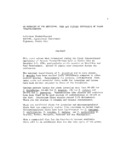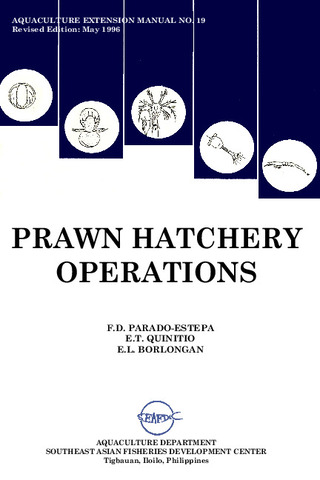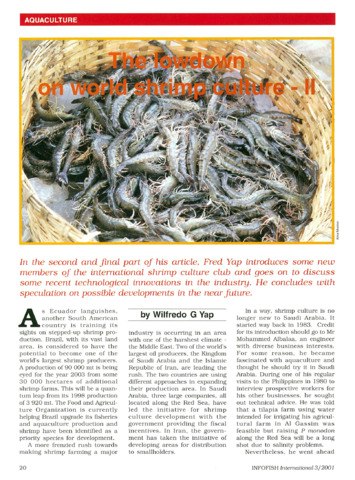A probiotic Bacillus strain containing amorphous poly-beta-hydroxybutyrate (PHB) stimulates the innate immune response of Penaeus monodon postlarvae
| dc.contributor.author | Laranja, Joseph Leopoldo | |
| dc.contributor.author | Amar, Edgar C. | |
| dc.contributor.author | Ludevese-Pascual, Gladys | |
| dc.contributor.author | Niu, Yufeng | |
| dc.contributor.author | Geaga, Mary Joy | |
| dc.contributor.author | De Schryver, Peter | |
| dc.contributor.author | Bossier, Peter | |
| dc.date.accessioned | 2017-08-23T06:08:16Z | |
| dc.date.available | 2017-08-23T06:08:16Z | |
| dc.date.issued | 2017 | |
| dc.identifier.citation | Laranja, J. L. Q., Amar, E. C., Ludevese-Pascual, G. L., Niu, Y., Geaga, M. J., De Schryver, P., & Bossier, P. (2017). A probiotic Bacillus strain containing amorphous poly-beta-hydroxybutyrate (PHB) stimulates the innate immune response of Penaeus monodon postlarvae. Fish & Shellfish Immunology, 68, 202-210. | en |
| dc.identifier.issn | 1050-4648 | |
| dc.identifier.uri | http://hdl.handle.net/10862/3158 | |
| dc.description.abstract | In this study, the PHB-accumulating Bacillus sp. JL47 strain (capable of accumulating 55% PHB on cell dry weight) was investigated for its effects on the immune response of giant tiger shrimp (Penaeus monodon) postlarvae (PL) before and after the Vibrio campbellii challenge. Briefly, shrimp PL were cultured and fed with Artemia nauplii enriched with Bacillus sp. JL47. Shrimp receiving the Artemia nauplii without JL47 enrichment were used as control. After 15 days of feeding, the shrimp were challenged with pathogenic V. campbellii LMG 21363 at 106 cells mL-1 by immersion. Relative expression of the immune related genes encoding for prophenoloxidase (proPO), transglutaminase (TGase) and heat shock protein 70 (Hsp70) in the shrimp were measured before (0 h) and after (3, 6, 9, 12, 24 h) the Vibrio challenge by quantitative real-time PCR using β-actin as the reference gene. The expressions of TGase and proPO were significantly up-regulated (p < 0.05) within 9 h and 12 h, respectively after challenge in shrimp receiving the Bacillus sp. JL47 as compared to the challenged and non-challenged controls. Hsp70 expression was significantly increased (p < 0.05) at 3 h post-challenge in all challenged shrimp. Interestingly, proPO and TGase genes were significantly up-regulated (p < 0.05) in Bacillus sp. JL47 treated shrimp even before the Vibrio challenge was applied. No up-regulation in the Hsp70 gene, however, was observed under these conditions. The data suggest that the protective effect of the PHB-accumulating Bacillus sp. JL47 in shrimp was due to its capacity to stimulate the innate immune related genes of the shrimp, specifically the proPO and TGase genes. The application of probiotic Bacillus species, capable of accumulating a significant amount of PHB, is suggested as potential immunostimulatory strategy for aquaculture. | en |
| dc.description.sponsorship | This work was supported by the Aquaculture Department, Southeast Asian Fisheries Development Center (SEAFDEC/AQD) [FH-05-C2012T] and the Bijzonder Onderzoeksfonds (BOF) [01W01311] of Ghent University, Belgium. BOF financed a doctoral grant for JLQL. | en |
| dc.language.iso | en | en |
| dc.publisher | Elsevier | en |
| dc.subject | Penaeus monodon | en |
| dc.subject | heat shock proteins | en |
| dc.subject | Amorphous PHB | en |
| dc.subject | Prophenoloxidase | en |
| dc.subject | Transglutaminase | en |
| dc.title | A probiotic Bacillus strain containing amorphous poly-beta-hydroxybutyrate (PHB) stimulates the innate immune response of Penaeus monodon postlarvae | en |
| dc.type | Article | en |
| dc.identifier.doi | 10.1016/j.fsi.2017.07.023 | |
| dc.citation.volume | 68 | |
| dc.citation.spage | 202 | |
| dc.citation.epage | 210 | |
| dc.citation.journalTitle | Fish and Shellfish Immunology | en |
| dc.subject.asfa | probiotics | en |
| dc.subject.asfa | juveniles | en |
| dc.subject.asfa | crustacean larvae | en |
| dc.subject.scientificName | Penaeus monodon | en |
Files in this item
| Files | Size | Format | View |
|---|---|---|---|
|
There are no files associated with this item. |
|||
This item appears in the following Collection(s)
-
Journal Articles [1258]
These papers were contributed by Department staff to various national and international journals.




